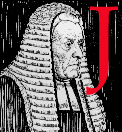
ean Baptiste de Lamarck was one of the great biologists of the late eighteenth and early nineteenth centuries. He was appointed to the Jardin des Plantes under Loius XVI and was deeply involved in its re-organisation into the Musée Naturelle Historiques in 1793. In 1794 he was appointed a professor of invertebrates, a name he himself coined. He re-classified Linnaeus' "worms" into 4 groups: molluscs, worms, polyps and echinoderms and later he removed the crustaceans and arachnids from insects. Later still he distinguished annelids from worms and infusorians from polyps. These major classificatory groups are still in use today. With Treviranous and others he proposed that "biology" be used to describe the study of organisms since he did not think that animal, vegetable and mineral groups were helpful in classifying the natural world. He recognised that organisms must be made of cells, even though cell structures were not discovered until after his death. He understood that higher organisms are represented by a concentration of organs and functions in specialised places within the body, whereas simpler organisms tend to have more generalised structures. He anticipated von Baer's law that development proceeds from homogenous to heterogenous structures: Herbert Spencer based one of the most important clauses in his theory of evolution on this. He distinguished between animals and plants by the fact that animals have "irritability", i.e. they contract on contact with foreign bodies, that they have digestive systems. and that they are able to move. Lamarck did not believe that organisms became extinct over time except through the actions of mankind. He pointed out that smaller organisms have very high birth rates and high mortality rates because they frequently become food for larger organisms: larger organisms by contrast have low birth rates because they tend to have fewer predators and thus a lower mortality rate.
It is as an evolutionist that he is most remembered today: he was the first to propose a theory of evolution so he is the father of modern evolution studies. His work reflects cultural roots set in the Enlightenment, especially the belief in progressive change, which quickly became intimately linked to democratic political ideals: theories of evolution and radical politics were inseparable from the start because those who believed in evolution had a very different world view from political conservatives. Evolution, which required that the cosmos be dynamic and changing, was an optimistic view of improvement and progress — whether or not any deity lay behind it. Early believers in evolution thought that governments and societies changed according to personalities and circumstances and therefore needed to involve all members of society in important decisions.
In contrast, those who opposed evolution believed that God had created a static, unchanging natural world and a static, unchanging human society: species, they thought, did not change, extinction did not occur. Similarly, according to them, God had also ordained monarchs and political systems at the act of creation, making them the most stable and best forms of social organisation. Challenging or even attempting change them, they believed, would inevitably lead to atheism and chaos. Because Lamarck's name has never been wholly dissociated from radical politics, one must keep this association in mind when attempting to follow the arguments that his theory of evolution generated. This connection of Lamarckian evolution and radical politics was especially important in the nineteenth century when radical political and social reformers in Britain and Europe fought for a more democratic, egalitarian society, using his ideas about of the natural world to justify their causes.
Last modified 24 January 2017